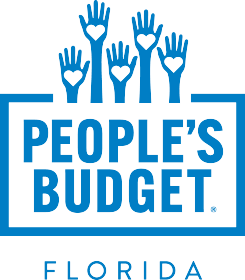TALLAHASSEE, FL – Representative Anna V. Eskamani (D-Orlando) alongside 18 lawmakers sent a letter to the Executive Director of the Florida Department of Revenue (DOR) requesting information relating to the state’s corporate income tax collections. In the letter, lawmakers outline nine questions regarding the tax obligation of corporations that do business in Florida.
Representative Eskamani offered the following statement:
“The GOP likes to talk a big game about corporate accountability and creating an ‘even playing field’ for big businesses — but every year, the data tells a different story. Florida has one of the easiest-to-avoid corporate taxes in the country – a tax so ridden with loopholes that only one percent of companies pay anything at all. Floridians deserve to know how their tax dollars are spent– who is benefiting and how much they are profiting. That’s why we’ve requested this data from the State Department of Revenue.”
Rep. Anna V. Eskamani and Senator Geraldine Thompson have filed legislation to close corporate tax loopholes and ensure that the world’s biggest and most profitable companies pay their fair share of Florida taxes. The bill (HB 769 / SB 1144) would end Florida’s practice of letting giant corporations pretend to be smaller companies when it comes time to pay state taxes on their profits.
Known as “separate reporting,” this badly outdated and easily exploited system allows big corporations to file different tax returns for each of their many subsidiaries. Separate reporting makes it very easy for companies like Walt Disney Company, Target, and Chevron to dodge Florida by moving their money through a corporate maze.
Instead, this legislation would require these big corporations to file a single, unified tax return covering their entire business – just like the single, unified businesses these companies really are.
This is known as “combined reporting.” And combined reporting prevents corporations from using tax-avoiding accounting tricks, like having one subsidiary pay another for the right to use the company’s name and logo.
More than half of the states in the country already require combined reporting for corporate income taxes, which provides a much more accurate picture of a corporation’s total profit – and its true tax obligation.
Florida’s antiquated system of separate reporting currently allows corporations to skip out on $420 to $800 million a year in taxes, according to estimates by independent economists. It’s also why Florida has one of the most unfair tax systems in the country – a tax system that punishes the working poor and middle class, while coddling corporations and the super-rich. Florida households in the bottom 20 percent of income pay a total state tax rate that is more than five times higher than the tax rate paid by the wealthiest one percent.
###

